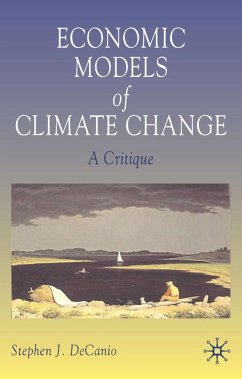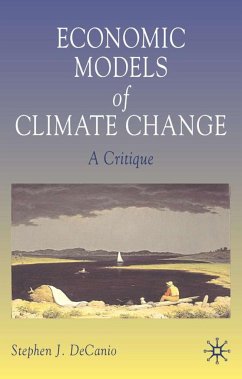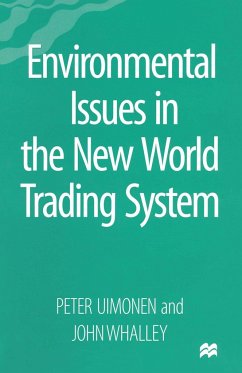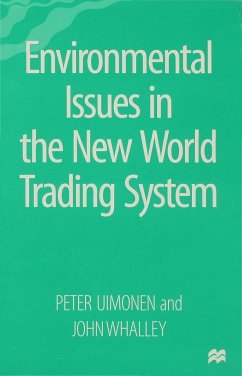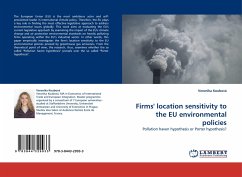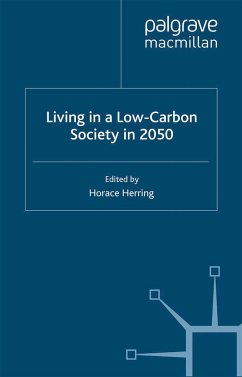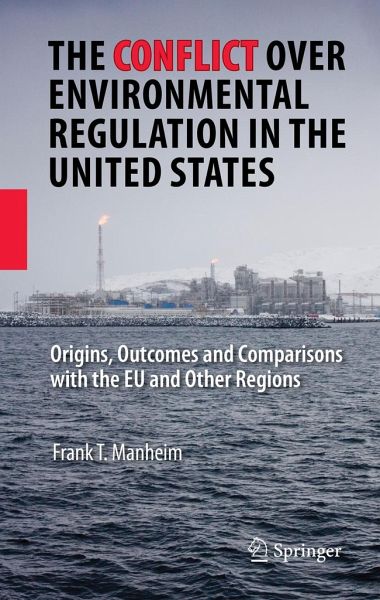
The Conflict Over Environmental Regulation in the United States
Origins, Outcomes, and Comparisons with the EU and Other Regions
Versandkostenfrei!
Versandfertig in 6-10 Tagen
38,99 €
inkl. MwSt.
Weitere Ausgaben:

PAYBACK Punkte
19 °P sammeln!
in Congress - are not considered, they may affect future energy programs just as they have past programs. Finally, potentially ruinously costly increases in energy imports force attention to the problem of how major public policy plans have been and are prepared in the United States. A witches' brew of some 500 energy bills proposed in the 110th C ongress in the House and Senate is now being stirred up. This "inspirational" approach to public policymaking bears little resemblance to the thoughtful way critical policies have been developed in the EU. A change of the way major national planning ...
in Congress - are not considered, they may affect future energy programs just as they have past programs. Finally, potentially ruinously costly increases in energy imports force attention to the problem of how major public policy plans have been and are prepared in the United States. A witches' brew of some 500 energy bills proposed in the 110th C ongress in the House and Senate is now being stirred up. This "inspirational" approach to public policymaking bears little resemblance to the thoughtful way critical policies have been developed in the EU. A change of the way major national planning is undertaken may do more than anything else to bring facts and reality into play, reduce hostilities, open up cooperation, new resources, technologies, creative energies, and productivity toward energy policy transitions. Chapter 6 Foreign Experience 6. 1 The European Union and Other Nations Take the Lead "The EU has pioneered a new form of post-national government, in which nation-states pool some of their sovereignty for the common good. Many of its admirers see this as a useful potential model for Southeast Asia, the Indian subcontinent, China-Taiwan, Latin America, parts of Africa and so on. The EU takes some issues, like human rights, global warming and the fostering of an international system of justice, with admirable seriousness . . . . . . Considering the kind of Europe it replaced, the EU has been an almost miraculous success (Walker, 2007).








